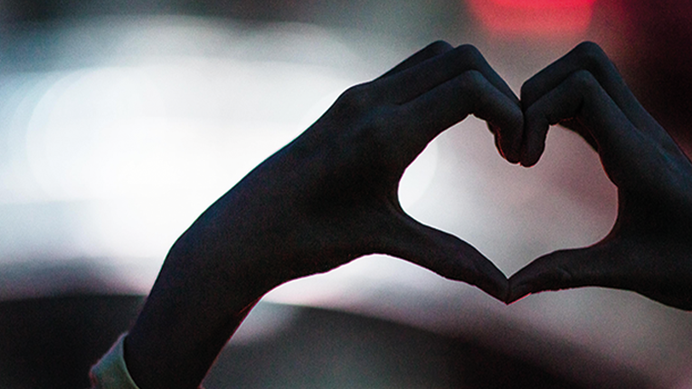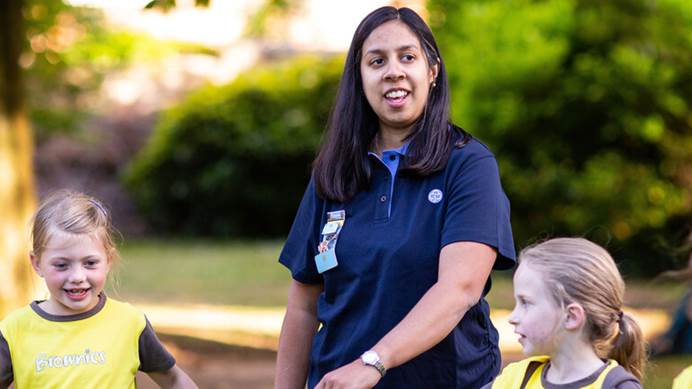Celebrating Carers Week – supporting young carers in your unit
We hear from a volunteer with caring experience on what it’s like to be a young carer, and what we can do to help
We spoke with Margaret, a volunteer with caring experience, and talked about what it’s like to be a young carer, and what we can do to help.
Who's a young carer?
There are probably more young carers out there than you think. The Children's Society estimates that there are around 800,000 young carers in the UK.
A young carer is a someone under the age of 18 who helps to look after a family member, relative or friend. A young person aged 16-25 with caring responsibilities can be known as a young adult carer. Specialist inclusion adviser, Margaret, has been in guiding since she was a Brownie and is currently a Guide leader. She has caring experience and reflects on how these numbers can be only the tip of the iceberg:
‘Lots of young carers don’t tell anyone that they’re a young carer. They could be embarrassed. They could assume everyone already knows. Or they could think they’re not even a young carer.’
She tells us that caring can look different according to each person’s circumstance: ‘People have this perception of a young carer who cares for a parent or grandparent with a physical disability and does the physical chores: shopping, cooking, cleaning etc. But in reality, they could be caring for someone with a mental illness or someone who struggles with substance abuse. They could be providing medical care or emotional support. They could be caring for a sibling. It’s a bit more of a spectrum than you might think it is.’
Understanding every member
‘Guiding can be a great opportunity for young carers because it’s a space where they can be themselves.’
Margaret shares that going to Brownies was an opportunity to be without caring responsibilities, try new experiences and be around other young people. However, she highlights that there can be practical and emotional obstacles to participating fully as a young carer.
‘Practical challenges like getting forms signed, trying to find lifts to places or needing to miss weeks may mean that young carers can’t make the most of their guiding experience.’
Emotionally, it can be difficult for young carers to be fully present in their units if they’re worrying about people they care for. ‘Young carers may even need support to interact with their age group,’ says Margaret. ‘If your day-to-day is filled with talking to adults, dealing with medication or nappies, then managing relationships with your peer group, who might be worrying about homework and gossip, can be challenging.‘
There’s lots of practical information and guidance on supporting young carers in your units. ‘As leaders and volunteers, hopefully, we can be a trusted and supportive adult to these young carers,’ says Margaret.
Starting a conversation
One way we can understand every girl’s situation is by getting to know them better: what matters to them, what do they care about, what makes them upset and what makes them feel better.
To get you started, Margaret recommends these resources:
She mentions that these are resources that she often encourages unit leaders to do with all their girls. ‘“The communication passports talk about likes and dislikes and are great to do with your unit when you have new people join. The wellbeing action plans are great if you have young people coming up to exams or before you go away on camp, as they talk about things we can do to improve our wellbeing.”’
‘These resources get you thinking about the girls as individuals, things they like, don’t like, things they struggle with. They allow us to care for the individual and learn how we can support each member.’
You can also find lots of guidance on how to support, welcome and recognise young carers on our website.
Useful links
- Carers Trust – Lots of information about young carers and those working with them.
- The Children’s Society – There's a range of information and practical guidance on working directly with young carers and their families.
- KIDS – Work exclusively with carers under the age of 18 offering groups providing support, advice and information.
- Childline – Provide information tailored for young carers and how they can get support.
- Sibs UK - Offers advice to young and adult carers who care for their siblings.



